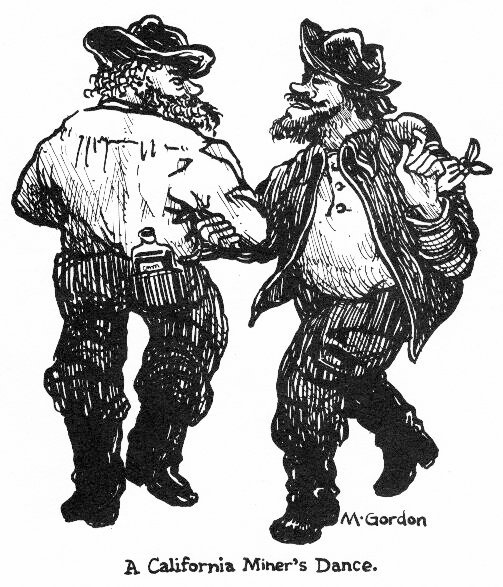Comet as a great example of Verfremdung?
#1Comet as a great example of Verfremdung?
Posted: 7/17/17 at 5:28pm
I know Comet has been billed as the most immersive experience on Broadway, but upon reflection, I feel it does more to isolate and distance insteading of pulling the audience in. For example, you are often reminded that you are watching a show instead of being in one (the opening song that asks you to read the program and the letter song first come to mind), and, if you are sitting in certain seats on stage, you get to pass letters, have performers sitting next to you, shake eggs etc. It might seem that Comet's (comparatively) heavy audience participation makes it a lot more immersive, since you are no longer passively watching a two- or three-hour musical but actively being a part of it. However, I think the participation also breaks the connection you build with the characters and the story along the way or at least the way we normally build it. I mean, my first reaction when Natasha sat beside me was more like "Whaaaaaat!? This is kind of strange but really cool!" than sympathizing with her story. It certainly pulled me out for a moment and got me thinking more about the craft than the story before returning to it.
Also, the show is an epitome of anachronism. Be it the set, the score, the lighting, the lyrics, or the choreography, clearly the creative team doesn't want to recreate an 18th Century Russia. Instead, we get a weird but heady mix that evokes some of the old glorious Russia, a touch of the Soviet Union era, and a spill of the Russia now that comes after it. In other words, what you see is not a world whose time and location you can easily and directly identify. You are in a fascinating world of nowhere and everywhere. Now, this might throw some people off, or not. But it does make it quite difficult for an audience member to instantly settle in.
This is not to say any of what I mentioned is bad or detrimental to the show. Rather, I am even more impressed by the artistic craft and thoughts that go in the production because it reminds me of Brecht's theory of Verfremdung, which he defines as "playing in such a way that the audience was hindered from simply identifying itself with the characters in the play. Acceptance or rejection of their actions and utterances was meant to take place on a conscious plane, instead of, as hitherto, in the audience's subconscious." I think the choice serves the piece excellently well. The show works, from my interpretation, on the condition that one is able to see the contrasts in motifs, music styles, and, most importantly, the flashy but superficial, excessively materialist society and people inhabiting it, and Pierre's weariness of it and the grace Natasha shows him. That's what makes the last line "into a new life" so potent and beautiful. And this goal is certainly easier to achieve when people are conscious of what's happening instead of being really IN the ride as they would in most plays and musicals. Any thoughts?
froote
Broadway Star Joined: 2/14/17
#2Comet as a great example of Verfremdung?
Posted: 7/17/17 at 5:39pm
Agree that the show purposefully puts you at a distance to the emotions of the show until the very end, which makes the final revelations of Pierre and Natasha so much more moving. I think the contrast of the war bunker lobby and the extravagance of the main house and the way you forget about the former until you face it again walking out at the end all adds to this.
#3Comet as a great example of Verfremdung?
Posted: 7/17/17 at 9:00pm
Very well put, both of you. I think there have been successful shows in the past which have attempted the same structure, but no one at the scale of The Great Comet comes to mind. It truly is a spectacular extravaganza. Off the top of my head, Pippin and Hedwig have similar things going for them. Pippin with the lead player essentially becoming the character he's supposed to be playing (depending on the production), and Hedwig with the glorious ending where you get to be a part of Hedwig's cathartic self-healing journey but it doesn't feel like a real story but a collection of essays, until the last couple songs.
theater_tech
Stand-by Joined: 5/2/17
#5Comet as a great example of Verfremdung?
Posted: 7/17/17 at 9:25pm
I agree to all of these. Fantastically well said!
#6Comet as a great example of Verfremdung?
Posted: 7/18/17 at 12:23am
I haven't seen the show, but I believe 1812 took place in the Nineteenth century.
As for Brecht's theory of estrangement, it wasn't invented by him, but by the Romantic poets around the time when GREAT COMET takes place. It has nothing to do with being "distanced" from the stage events or from one's own emotions (the latter being literally the last thing Brecht wants). Remember that Brecht said theater should be like a boxing match, where everybody takes sides and cheers for his/her position.
But he does want real emotion; i.e., the spectator's own feelings about the real world where s/he actually has a stake and can influence the outcome. To Brecht and those Romantics, estrangement has three parts:
1. I know what that (character, plot, theme, etc.) is.
2. Wait a minute. It looks odd.
3. Ah ha. Now I see it in a new way.
It is the thing(s) on stage that are "estranged", not the spectator. (Check out the Short Organum and you'll find Brecht using "V-effects" in plural. There are many V-effects produced in any one production.)
It's true Brecht doesn't want us to imagine we can feel what Oedipus feels, i.e., "identification" or "empathy". This is because the life of the character is unchangeable in most productions and has a finite time period, too short to change. Brecht wants us to feel and think about our own world and the comment the play is making on the world around us and what needs to be changed. But that isn't the V-effect, though the V-effect is one way to achieve it.
#7Comet as a great example of Verfremdung?
Posted: 7/18/17 at 12:34am
I'm gonna have to say no. If anything Comet is like a commercialized version of Artaud's Theatre of Cruelty.
bear88
Broadway Legend Joined: 4/26/16
#8Comet as a great example of Verfremdung?
Posted: 7/18/17 at 12:38am
There be spoilers below, so be warned:
Great Comet is distancing in many ways, which I think accounts for many of the reasons some people don't like it. The switches back and forth between first- and third-person narrative, however briefly, take you out of the musical. It's harder to follow, especially at first, and has that, "You're watching a play" dynamic that I don't always enjoy myself in other shows. (I wasn't a fan of Curious Incident for a variety of reasons, and that was one of them.) Because of the setup and the way some scenes are played, you're watching the audience at least some of the time, which is often part of the fun. But all of that distracts from the audience's normal focus: the actors on stage. Shoot, there's not even a conventional stage, and the performers are all over the place.
This is jarring, and I think it explains some of the confusion some audience members and even critics feel. I have been puzzled by the criticism of the show as an empty spectacle, but the audience participation element of it turns the audience into co-conspirators. We're at the party too, shaking the eggs, catching pierogis, getting letters. It's all so much decadent fun! Even if you don't play along, as many people at the show I attended did not, you're still there at the party. You may disapprove of Anatol, Dolokhov, Helene, Balaga, and their pals, but they're a little too enjoyable to play along with or just watch. The set and costume design, the lighting, the whole rich atmosphere is intoxicating. It's not hard to imagine why the young Natasha is swept away, because I was too.
But by the last half-hour, the party is over, pretty much the moment Marya yells, "You will not enter my house, scoundrel!" And then it's a different show. To critics who have complained that this is all too little, too late, I think they're missing the point - and Pierre's songs in the first act (not to mention Sonya's at the beginning of Act Two). The show is quite faithful to the War and Peace chapter on which it's based, and the "hangover" impact is intended. Natasha is suicidal and crushed, Pierre is disillusioned but determined to help somehow, and the conclusion brings redemption to both characters.
During that time, the show becomes more conventional in terms of the audience interaction (or lack thereof), with the final two songs bringing a stillness and beauty that have stayed with me. The fact that the conclusion was preceded by a wild, participatory, centuries-spanning, materialistic party only reinforces the power of its quiet conclusion.
#9Comet as a great example of Verfremdung?
Posted: 7/19/17 at 1:51am
asimplegal2 said: "I'm gonna have to say no. If anything Comet is like a commercialized version of Artaud's Theatre of Cruelty.
"
I still haven't seen the show (though I have listened to the recording a number of times) and I'm not always sure I follow Artaud's circular reasoning, but your post makes sense to me.
#10Comet as a great example of Verfremdung?
Posted: 7/19/17 at 11:11am
GavestonPS said: "asimplegal2 said: "I'm gonna have to say no. If anything Comet is like a commercialized version of Artaud's Theatre of Cruelty.
"
I still haven't seen the show (though I have listened to the recording a number of times) and I'm not always sure I follow Artaud's circular reasoning, but your post makes sense to me.
"
Theatre of Cruelty emphasizes the audience's role in theatre and aims to "wake them up" and remind them of their obligations. The Great Comet directly addresses the audience and makes them aware of their role/responsibilities from the get-go ("gonna have to study up a little bit..."![]() .
.
It very much aims to shock and "wake up" the audience, bombarding their senses loud music and noises, strobe lights, special effects, weird images and costumes (during The Opera especially), and big, interactive dance numbers. This is an important element of Theatre of Cruelty. Another key element is placing the audience in the center of the theatre and surrounding them with the action of the show. This isn't 100% possible in a Broadway theatre, but this is clearly what Comet is aiming for.
And obviously, the characters engage and interact with the audience members, again, making them aware of their role as viewers and keeping them engaged.
I would say here are some aspects of Brecht's alienation, but the show is not Brechtian because ultimately it DOES want its audience to be emotionally involved. Metatheatricality is a common device in contemporary theatre and doesn't always automatically = Brecht. I would say the show incorporates many more elements of Artaud's Theatre of Cruelty, and it's cool to see his avant-garde theory in practice in a contemporary, commercial show!
#11Comet as a great example of Verfremdung?
Posted: 7/19/17 at 12:52pm
Impossible to discuss without SPOILERS.
Haven't seen it since December, but what I recall most: the bells, whistles, conventions and both directorial and text-specific stylings that distract or distance, both terms used here neutrally, not pejoratively, are employed and then semi-abandoned along the way. The show tends to toss the creative bag aside in its final half of act two and deliver something akin to old school musical theater, as the titular characters find one another. I remember feeling like I was back in the Hal Prince "Candide" at the top, especially with the spliced audience, filling aisles, tossed accoutrements. I then felt elements of both the Fosse and Paulus "Pippins" -- and a whiff of Richard Foreman* every now and then. The show was so appealing, I didn't care. But I know a lot of folks who didn't fall in love, and a handful who left at the intermission. It's quite a show, but not for everyone. Nor does it have to be.
*Especially Foreman's "Don Juan" done at the Guthrie and then in the park, not to everyone's taste, either.
#12Comet as a great example of Verfremdung?
Posted: 7/20/17 at 8:37am
asimplegal2 said: "...I would say here are some aspects of Brecht's alienation, but the show is not Brechtian because ultimately it DOES want its audience to be emotionally involved. Metatheatricality is a common device in contemporary theatre and doesn't always automatically = Brecht. I would say the show incorporates many more elements of Artaud's Theatre of Cruelty, and it's cool to see his avant-garde theory in practice in a contemporary, commercial show!
"
In early essays, Brecht did say his Epic Theater ("his" although the form was originated by Piscator) address the spectator's intellect rather than his/her emotions--and 10,000 deadly boring college theatrical productions were born!
But in his more mature writings, Brecht backs away from the notion. (If you read his first essay on Epic Theater you can see Brecht trap himself in his own diagram where everything about Aristotelian theater is opposed by Epic Theater. Of course, the reality is not so simple.) Nobody who says theater should be more like sporting matches is hoping for a cerebral audience who calmly surveys the arid territory of the play.
Early in his career, Brecht tried to devise plays to be performed at factories to teach workers about their Labor Union and the Communist Party. He found that "educating" the audience didn't actually work very well. Later, he decided that the goal of the art should be to change the spectator's critical attitude, not to deliver facts.
As I said above, Brecht just wants honest emotion; i.e., YOUR feelings about injustice, corruption, tyranny, etc. He wants to profoundly change your and my understanding of the world so that we view it with a critical attitude and look for ways to change it. His is NOT an "unemotional" theater.
***
Your account of Artaud is very consistent with what Artaud SAYS the Theatre of Cruelty should be, and maybe he would have enjoyed COMET. But I must admit that the two plays BY Artaud that I have endured have been largely conventional, except that they dealt with gory content.
#13Comet as a great example of Verfremdung?
Posted: 7/20/17 at 12:10pm
First of all, I'm loving this discussion. It's so cool to see all these well thought out and varying answers.
Secondly, I thought I'd just share my personal take on the show's set-up. I always thought the concept that Rachel and Dave were going for was for the audience to feel like they had gone out to a supper club with a bunch of friends, and some of those friends were like: "Hey! Let's do a reenactment of that really good part of War & Peace." This is why there's so many anachronisms, such as Pierre singing "hours at my screen," the ensemble's costumes, the strobe rave, single sex couples dancing together during "The Ball," Hélène calling herself a slut, and the extremely diverse casting. It's also why the cast pops out at the top of the show, out of character, and mingles with the audience, and, of course, why there's four bars in the theater.
I've seen the show twice with companions (once by myself), and I told these thoughts to one of my guests, but not the other. The one who I told enjoyed the show much more than the other, who kept getting bogged down by thoughts of "But it's 19th century Russia. Why are they wearing neon?"
I think the real genius of the show (and Rachel's direction) comes from the fact that up until "Pierre and Andrey," no part of you actually feels grounded in that time period. It's just a show about a "complicated Russian novel." Sure, there are hard-hitting and emotional moments beforehand ("Dust and Ashes" and "Sonya Alone" come to mind), but you never spend enough time in that stripped up solitude – before the show's last twenty minutes – to really lose yourself in the material. Then all the bells and whistles disappear and suddenly you're left with three people dealing with very real consequences. Someone described it as a "hangover," and I think that's the best way to put it. Rachel uses a lot of juxtaposition in the show, and in my opinion, that does wonders in making the emotional moments more emotional, and the "just for fun" moments even more fun.
#14Comet as a great example of Verfremdung?
Posted: 7/20/17 at 2:53pm
Nice discussion. But someone please tell me what Brecht thought about actors doing stage door so that I know I am on the right site.
#15Comet as a great example of Verfremdung?
Posted: 7/20/17 at 8:45pm
^^^^ LOL. I don't recall Brecht ever discussing stagedooring, but I suspect he would be horrified by our modern cult of celebrity. And besides, there's plenty of evidence that, in his mind, Brecht was the only star of Brecht production.
***
I don't know Malloy or Chaikan's other work, but COMET sounds reliably post-modern. Post-modernism borrows from many modernist (early 20th century) movements from Surrealism to Bauhaus, WITHOUT necessarily sharing the goals of those movements. So discussing whether COMET is more akin to Brecht than Artaud may be beside the point in the end.
As Brecht pointed out back in the 1950s, audiences have become so clever that they automatically turn presentational elements into representational ones UNLESS the production keeps changing its stylistic rules. As post-modernism has augmented the fluidity of time, space and attitude in the theater, audiences have responded with ever increasing sophistication. (Look at the simple sitcom: nowadays, the "A" and "B" stories may unroll in entirely different times and places. Nobody even tries to bring them together at the end.)
This problem alone may explain the sudden shift in style at the end of COMET. For often, post-modernism uses the devices of modernist theory without reference to the movements' manifestos.
.png)







